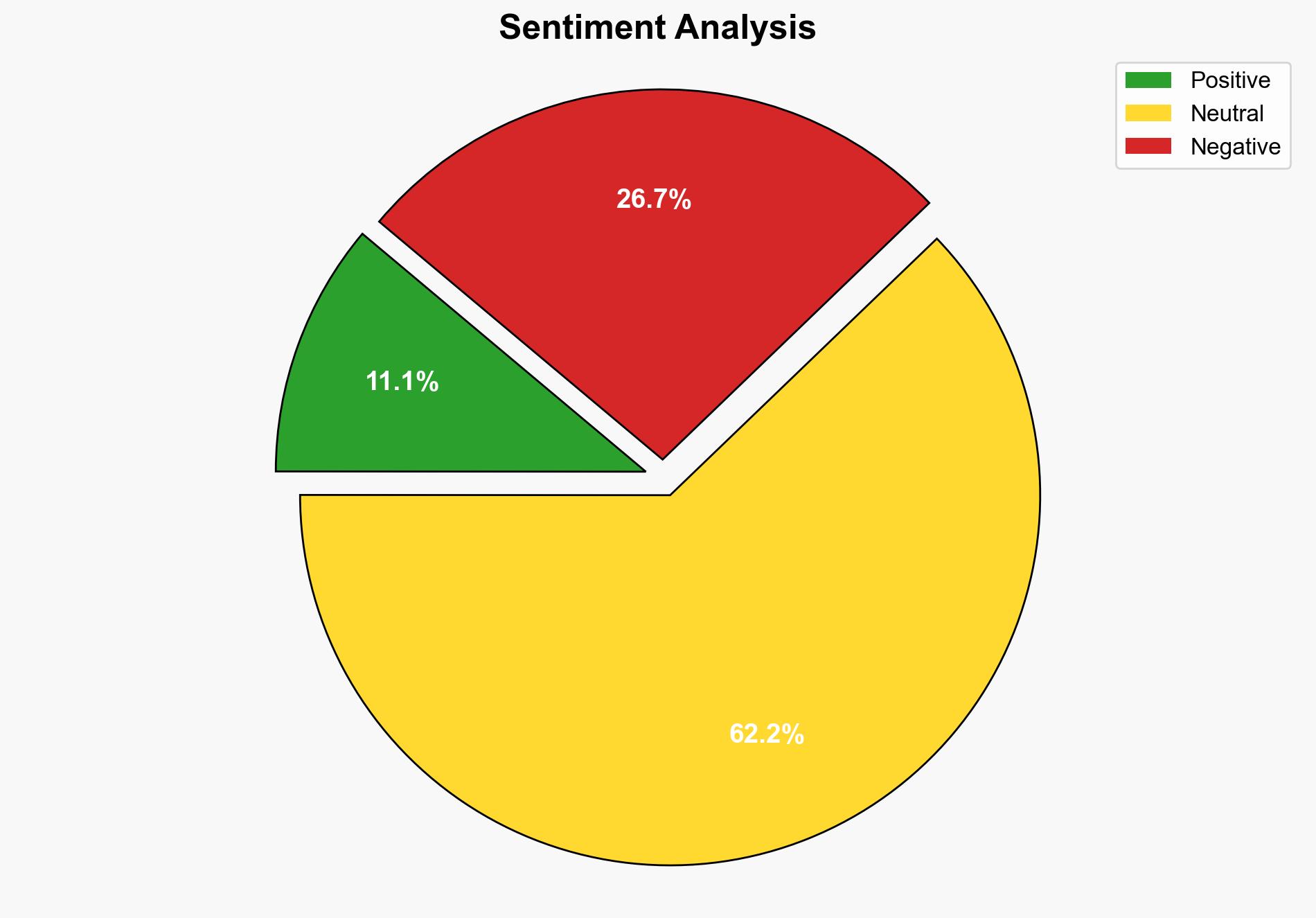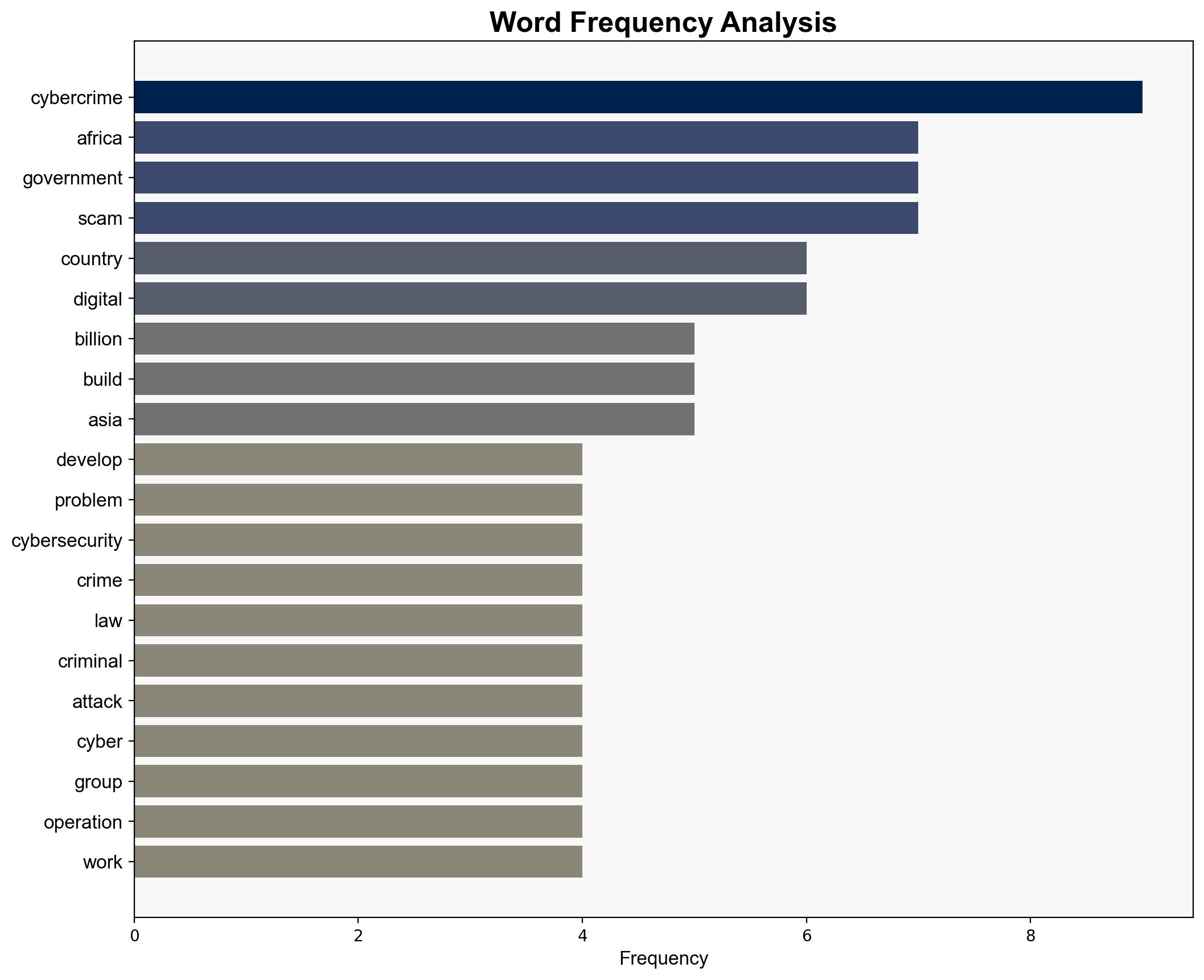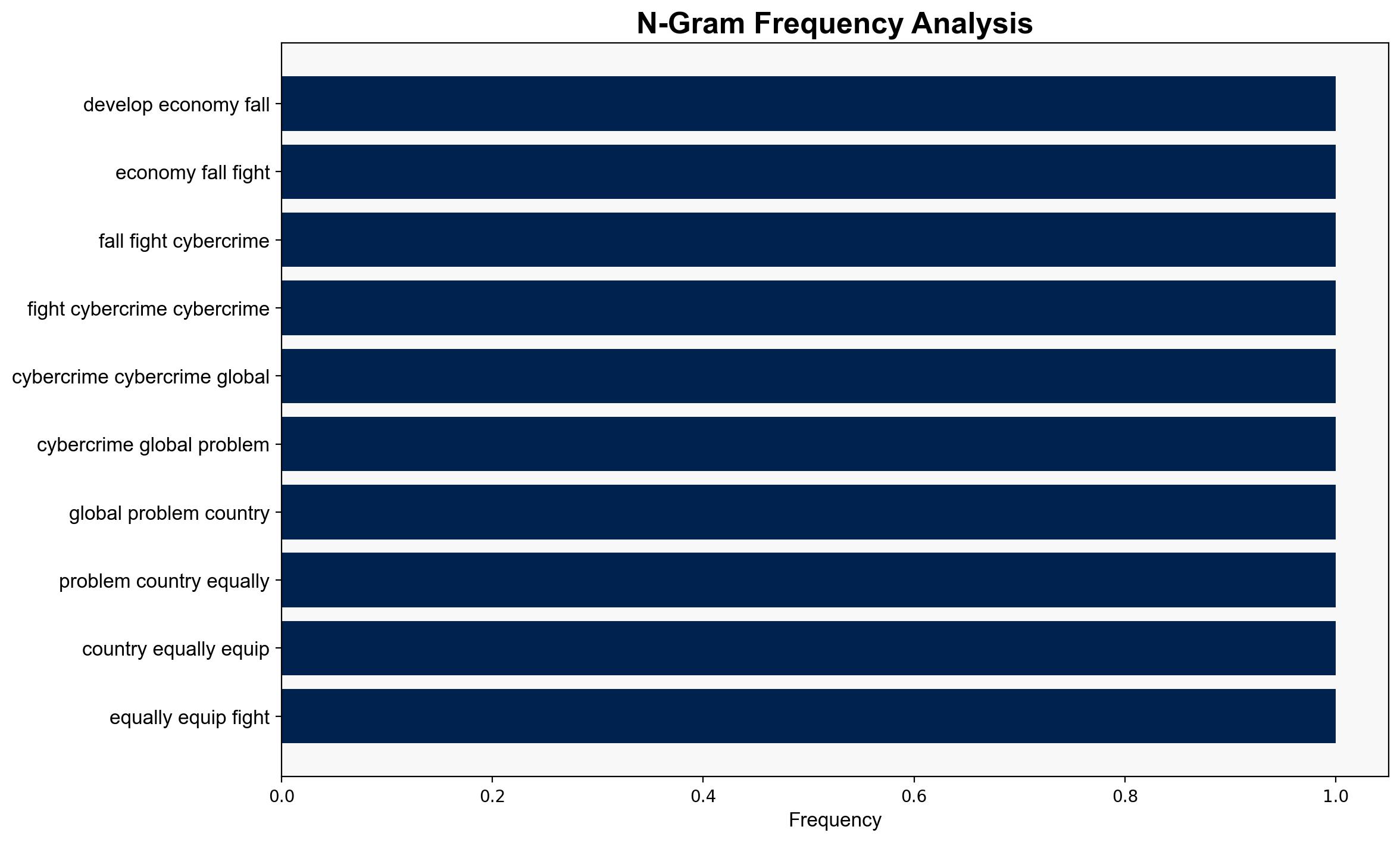Developing economies are falling behind in the fight against cybercrime – Help Net Security
Published on: 2025-10-08
Intelligence Report: Developing economies are falling behind in the fight against cybercrime – Help Net Security
1. BLUF (Bottom Line Up Front)
Developing economies face significant challenges in combating cybercrime due to limited resources, skill shortages, and inadequate legal frameworks. The most supported hypothesis is that these economies will continue to lag behind in cybersecurity unless substantial international cooperation and investment are initiated. Confidence Level: Moderate. Recommended action includes fostering international partnerships to enhance cybersecurity capabilities and legal frameworks in developing regions.
2. Competing Hypotheses
Hypothesis 1: Developing economies will continue to fall behind in cybersecurity due to inherent structural and resource limitations, leading to increased vulnerability to cybercrime.
Hypothesis 2: With targeted international support and investment, developing economies can significantly improve their cybersecurity posture, reducing their vulnerability to cybercrime.
Using Bayesian Scenario Modeling, Hypothesis 1 is currently better supported due to the existing evidence of limited resources, skill shortages, and inadequate legal frameworks. However, Hypothesis 2 remains plausible if international support is effectively mobilized.
3. Key Assumptions and Red Flags
Assumptions:
– Developing economies lack the financial and human resources to independently enhance their cybersecurity.
– International cooperation is necessary for significant improvement in cybersecurity capabilities.
Red Flags:
– Over-reliance on international aid may lead to dependency without sustainable local capacity building.
– Inconsistent enforcement of existing laws and regulations could undermine progress.
4. Implications and Strategic Risks
The continued lag in cybersecurity capabilities in developing economies poses risks of increased cybercrime, potentially destabilizing economic and social structures. This could lead to cascading threats such as increased financial losses, erosion of trust in digital systems, and potential geopolitical tensions if cybercrime is perceived as originating from these regions.
5. Recommendations and Outlook
- Encourage international organizations to provide targeted support for cybersecurity training and infrastructure development in developing economies.
- Promote the establishment of regional cybersecurity alliances to facilitate knowledge sharing and coordinated responses to cyber threats.
- Scenario-based projections:
- Best Case: Effective international collaboration leads to significant improvements in cybersecurity, reducing cybercrime rates.
- Worst Case: Continued neglect results in escalating cybercrime, further destabilizing economies.
- Most Likely: Incremental improvements occur, but substantial challenges remain without sustained international support.
6. Key Individuals and Entities
– Sadrah Irasubiza, founder of NetFella
– Interpol
7. Thematic Tags
national security threats, cybersecurity, counter-terrorism, regional focus





